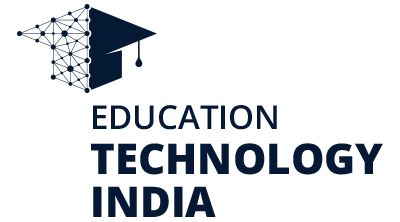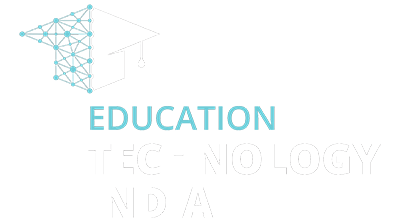To address the issues of pandemic-induced learning setbacks and an expanding skills gap that could have significant economic consequences for the U.S., institutions must rely on technology solutions supported by thorough research and empirical evidence

Human capital, comprising the combined knowledge, skills, and attributes of individuals, serves as the fundamental driver of productivity and growth within economies and organizations. Its formation begins in early childhood and is subsequently cultivated through formal education, training, and real-world experiences. In the current era characterized by swift changes, emphasized as “accelerations” by journalist Thomas Friedman, the urgency for quickened learning and adaptability becomes evident. This modern age necessitates a thorough evaluation of our educational systems to gauge their preparedness in facing these challenges.
Education Assessment: Unveiling Urgent Concerns
Recent scores from the OECD’s Programme for International Student Assessment (PISA), measuring 15-year-olds’ proficiency in applying reading, mathematics, and science knowledge to real-life challenges, reveal an urgent call for educational innovation. The 2022 PISA results indicate a troubling drop in the average math scores of U.S. students—down by 13 points since the pandemic’s onset and 18 points from the inaugural PISA math test in 2003.This decline is echoed in the National Assessment of Educational Progress (NAEP), also dubbed “The Nation’s Report Card,” where only a third of fourth and eighth-grade students demonstrated proficiency in reading and math. Of particular concern is the significant achievement decline among academically at-risk students in the bottom quartile, with a pronounced gap when viewed through a social equity lens. Proficiency levels for lower-income students, identified by their eligibility for free or reduced lunch programs, were less than half those of their higher-income counterparts.
Student diversity in learning
The decline in foundational skills can significantly impact the future labor market, potentially resulting in a workforce lacking essential capabilities and facing reduced earning potential. Stanford University economist Eric Hanushek, in the article “Generation Lost: The Pandemic’s Lifetime Tax” published in Education Next, characterizes these declines as a “lifetime tax” for the COVID cohort, projecting an average 6 percent reduction in their lifetime earnings. Equally concerning is the anticipated impact of this skill gap on the U.S. economy, estimated by Hanushek to be a staggering $28 trillion on a present-value basis.Regrettably, our educational system has yet to adapt to the diverse learning needs within schools and classrooms, necessitating innovative solutions. Given the profound economic challenges facing our future workforce and economy, there is an imperative to revolutionize our education approach.
In “Breaking With the Past: Embracing Digital Transformation in Education,” a publication from Digital Promise (a nonprofit organization established by the U.S. Congress in 2008), the recognition of learner variability is deemed crucial for any teaching and learning framework. Educational technology (ed tech) emerges as a potential solution by empowering teachers with data to create personalized, engaging, and adaptive learning experiences on a scalable level, addressing each student’s unique needs.
This shift requires a data-driven education model leveraging the capabilities of AI and ed tech to offer real-time insights into student knowledge and behaviors, enabling tailored learning approaches. Such an educational model is essential for accelerating learning and preparing students for a technology-driven future. Commencing this approach with the youngest learners holds the potential to instill a growth mindset, fostering creativity and enhancing critical thinking.
The growing commitment to early education is substantiated by groundbreaking research from James Heckman, a Nobel Prize-winning professor and economist at the University of Chicago, emphasizing the most effective societal investments in education occur during early childhood. Reflecting these findings, states are intensifying their focus and investment in early education programs, with a noticeable increase in technology integration as of 2023. This surge in digital tools, coupled with strategic funding for innovative educational solutions, signifies a concerted effort to reap long-term benefits for individuals and society at large.
The significance of a approach grounded in evidence
For ed-tech solutions to truly succeed, they must be anchored in robust research and empirical evidence. As technology integrates into classrooms, it is crucial that these tools are supported by credible research. The Department of Education emphasizes the need to base ed-tech decisions on rigorous evidence to genuinely enhance student outcomes. A report from the EdTech Evidence Exchange underscores the urgency for improved dissemination of information on effective technology solutions, helping educators identify solutions that enhance learning and engagement. By staunchly advocating for evidence-driven ed-tech, educators and policymakers can ensure technological advancements transform education and deliver tangible, positive results for students in our rapidly evolving digital economy.
In an era of profound accelerations, the significance of human capital becomes even more apparent. Amid rapid transformations, nurturing our collective knowledge, skills, and attributes is vital. The integration of technology in education showcases our adaptability and commitment to accelerated learning.
Despite challenges, the fusion of education and technology presents a source of optimism. By leveraging AI and ed tech, we not only adapt to a changing world but also invest in our most valuable asset: human capital. Through collaboration among educators, technologists, and policymakers, we are establishing the groundwork for a future where every individual, regardless of background, possesses the knowledge and skills to navigate rapid change, realizing their fullest potential and benefiting both themselves and society.






